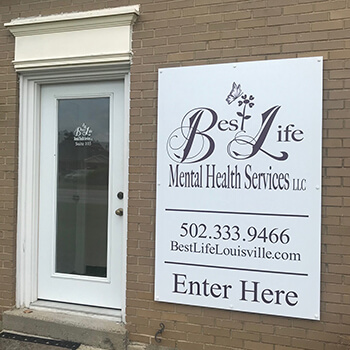Relationships tend to be much easier in the beginning. You and your significant other are blinded to each other’s deficiencies. The other person is all you can think about day and night. You would do anything for them, and it all feels so magical. But, once you’ve said your “I dos”, returned from the honeymoon, and settled into “real life,” things begin to change. And it’s not just married couples who experience this change. If you and your partner have been dating for a significant period of time, you are likely to experience this as well. The rose-colored glasses come off, and your relationship doesn’t look exactly like you expected.
You used to only notice all the positive things about your partner, but now it seems like they have started doing many things that irritate you. The butterflies you used to feel have fluttered away, and you are left staring at your partner’s negative tendencies, failures, and shortcomings. This is the point when some people start to wonder, “Did I make a mistake?” or “Am I with the wrong person?”
It’s natural for relationships to change
Let me assure you that it’s not just you. This normal transition happens in relationships once you move past the “honeymoon phase.” The newness wears off, leaving you in a relationship with an imperfect person. But let me remind you that your partner likely feels the same way. The good news is this doesn’t mean your relationship is doomed to fail or that you will need to settle for being unhappy for a lifetime.
As a society, we have accepted that people and things change, yet we fail to recognize the same principle applies to intimate relationships. As these changes occur, there are things you can do to maintain or rekindle the fervor that radiated through your eyes when your love was brand new.
Understanding the love bank
Imagine that you and your partner each have a love bank inside of you. When your partner does nice things for you and builds you up, they make deposits into your love bank. For example, they bring home your favorite take-out meal because they know you’ve had a rough day—deposit. They notice your new haircut and compliment you—deposit. They take the trash out when they notice it’s full without you needing to ask—deposit. And they give you a kiss and tell you to have a good day when you leave for work—deposit.
When your love bank is full, the relationship feels easy. It’s natural to love someone who loves you, treats you well, helps you, and creates positive experiences for you.
But, your partner also makes withdrawals from the love bank through their negative actions. For example, you try to tell them about your day, and they pretend to listen but ignore you—withdrawal. They raise their voice in anger during an argument—withdrawal. They make a big purchase from your shared checking account without talking to you about it first—withdrawal. And they make plans with their friends when the two of you already had plans with each other—withdrawal.
The relationship doesn’t feel as good when your love bank is empty or overdrawn. It’s harder to love someone when it feels like they are always taking from you or creating a negative experience for you. It’s easy to think about how this applies to ourselves, but it’s not as easy to think about how this applies to our partner. How you behave, talk, and treat your significant other impacts how they feel about you. Are you making more withdrawals than deposits?
There are going to be constant deposits and withdrawals within every relationship. However, if you want a healthy and satisfying relationship, you and your partner need to focus on making more deposits than withdrawals. You want to keep your account with a big balance, so anytime one of those negative experiences does happen, it’s not overdrawing the account.
A word of warning
Please note that safety and overall well-being are primary factors to consider when assessing your relationship needs. This information does not apply to your situation if you are in an abusive relationship. Seeking appropriate help through emergency response staff and medical or mental health providers, may be necessary. Your safety is always the top priority.
How to improve your relationship by keeping the love bank full
Let’s look at four main principles that ensure your Love Bank can stay full as deposits and withdrawals are made.
1. Focus on selflessness
Selfishness doesn’t lead to healthy, happy relationships. You may experience short-term happiness if you’re always getting your way, but it won’t be long before your partner begins to suffer, negatively impacting your relationship. Instead, it’s important that both of you focus on demonstrating selflessness with each other.
There will be variations in how your selfless acts are expressed, and that’s okay. You will each find your own way to prioritize the other. The important thing is that you value each other’s needs as equal to your own.
Here are some ideas on how you can show selflessness within your relationship:
- Consider what your spouse or significant other needs right now and look for ways to meet that need.
- Put their preferences before your own. For example, if the two of you are going out to eat, choose their favorite restaurant.
- Listen when they speak to you. Turn the TV down, put your phone down, and give them your undivided attention.
- Look for little things you can do daily to show them you’re thinking about them.
- Focus on giving compliments instead of trying to get them.
What to watch for: Don’t wait for your significant other to do this for you before you get started practicing selflessness. Couples can commonly stumble here because they want to see their spouse or partner being selfless first. One of you may need to take action without waiting on the other, but you will often see your partner respond. If your partner always prioritizes their needs above your own, it may help to try couples counseling to explore reasons for the struggles in your relationship and how to best move forward.
2. Build good communication skills
Communication and collaboration are vital to any relationship. Healthy communication based on honesty allows you and your spouse or partner to build trust and security within the relationship. However, the hustle and bustle of life often interfere with couples having consistent and healthy communication. But, if communication is left unchecked, couples start to feel disconnected. This feeling can lead to additional struggles with intimacy in the relationship.
Here are some examples of what good communication skills look like in an intimate relationship:
- Share your opinions in an honest and kind way
- Telling your partner what you need instead of expecting them to know it
- Sharing your boundaries and what behaviors you find unacceptable
- Complimenting and building up your significant other
- Asking clarifying questions instead of making assumptions
- Saying what you mean and avoiding double messages
- Addressing problems and concerns instead of ignoring them
- Keeping arguments focused on the issue at hand
- Listening
- Considering your tone of voice and body language
Good communication is an essential element of having a healthy relationship. In fact, one study found that a breakdown in communication was the leading cause of divorce in the United States. The good news is that communication skills can be learned and developed. If this is an area where you and your partner struggle, a couples therapist can help you learn strategies to improve your communication and your relationship as a whole.
3. Pay attention to timing
Timeliness is often a factor considered for positive job performance. However, it is an important factor in relationships as well. From an emotional standpoint, there are certain needs that must be addressed within a specified timeframe. Windows of opportunity must not be ignored or withheld for selfish ambitions or retaliation.
Life is a precious gift, so we must utilize the time for personal enhancement and strengthening our relationships.
4. Choose a positive mindset
Our thoughts and words shape and mold our behaviors and actions. If you mainly think negative things about your partner, you are going to continue to see them in a negative light. When they are doing something positive for you and trying to make a deposit into your love bank, you may miss it because of your negative mindset.
Not only does choosing a positive mindset about your significant other help the relationship, but it’s also helpful to focus on creating a positive life together. Setting goals together as a couple can be an effective way to keep a positive mindset in the relationship. As you and your partner work together to achieve your goals, you grow closer together through the process. You can celebrate shared successes and the other person’s successes.
While having an optimistic perspective is good, it does not mean that the relationship will be perfect or void of challenges and unexpected events. However, each situation you are presented with should be addressed through a realistic and positive vantage point.
Couples counseling can help you learn to keep the love bank full
If you and your significant other have had overdrawn love banks, navigating the relationship on your own can be challenging. Couples therapy can help the two of you find shared meaning and reconnect with one another while learning to fill each other with love. If you are interested in learning more about couples therapy or being matched with a couples counselor, schedule a free consultation by hitting the button below.



